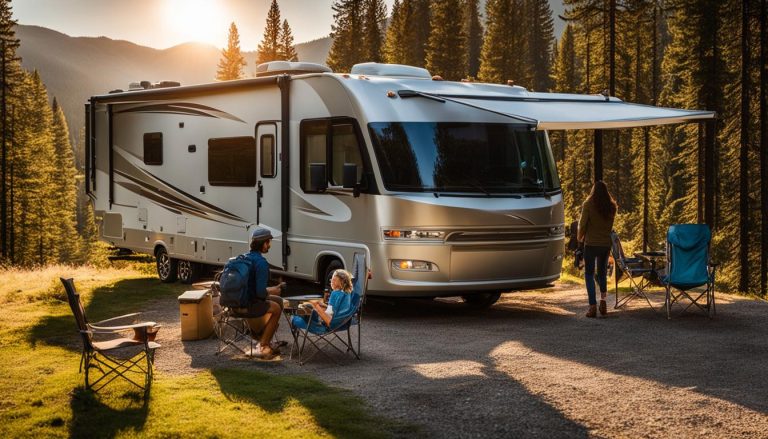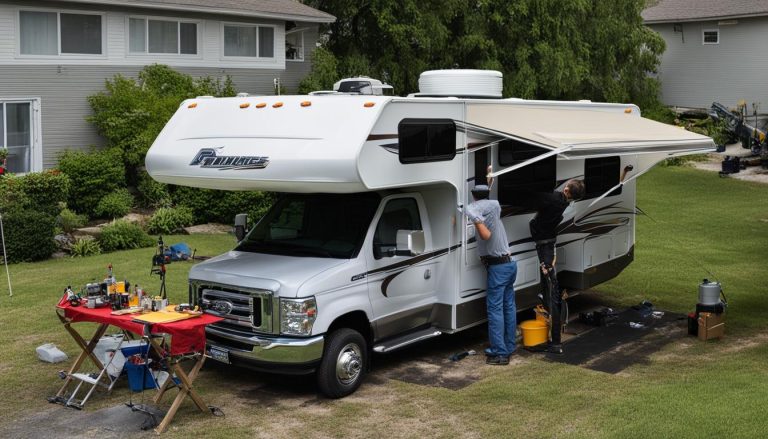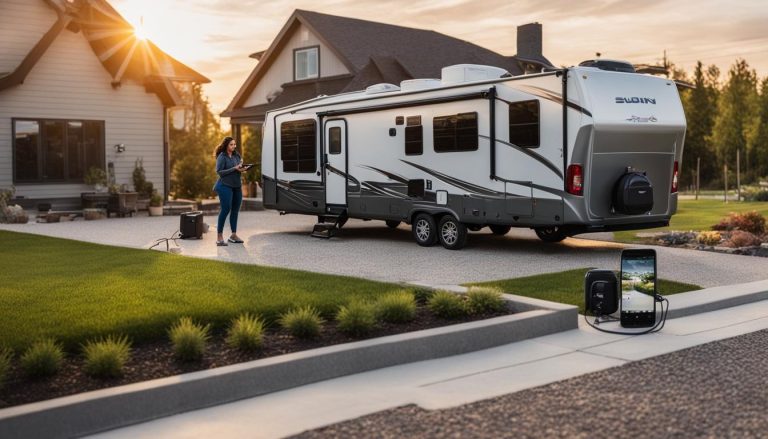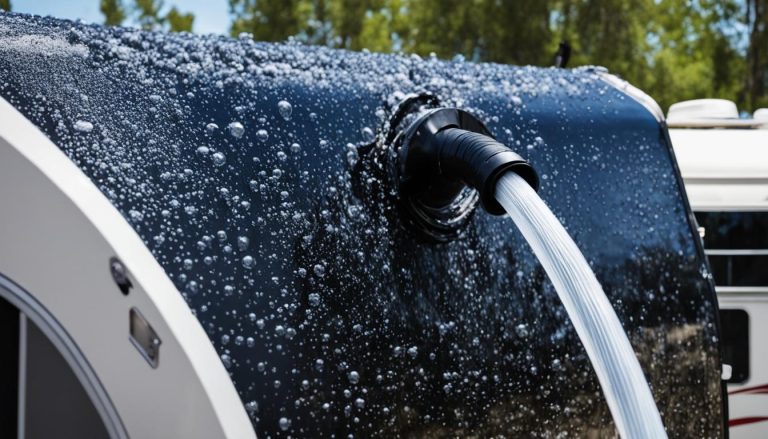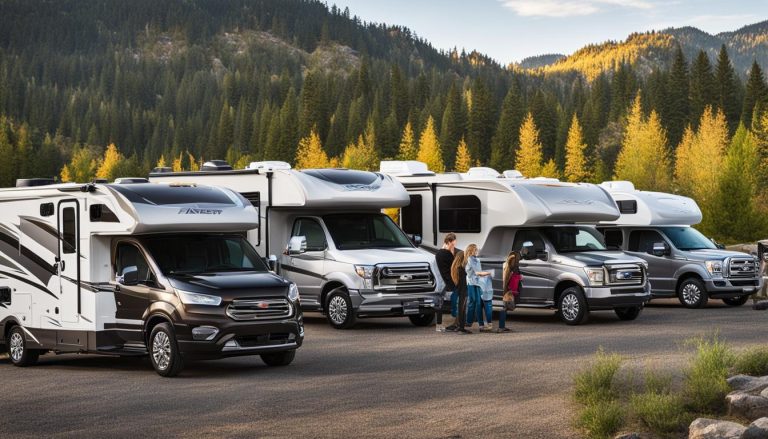Stay Connected: Get Internet in Your RV Trailer
gorvlifestyle.com and its partners may earn a commission if you purchase a product through one of our links
RV WiFi is essential for staying connected while on the road. Whether you’re working remotely or simply want to stream movies and keep in touch with loved ones, having internet access in your RV trailer is important. There are several options for getting internet in your RV, including cellular data and WiFi networks. Determining the level of connectivity you need is the first step in finding the right solution.
Consider your internet usage, such as checking email, working remotely, video conferencing, streaming movies, and online gaming. Additionally, you’ll need to consider where you’ll be camping, as the availability and quality of campground WiFi can vary. It’s important to choose the best internet setup for your RV based on your specific needs and circumstances.
Key Takeaways:
- RV WiFi is crucial for staying connected while on the road.
- Options for RV internet include cellular data, WiFi networks, and satellite internet.
- Consider your internet usage and the locations where you’ll be camping when choosing the best solution.
- Cellular data can be a convenient option if you have a good cell signal in the areas you’ll be camping.
- WiFi networks in campgrounds may have limited availability and slower speeds compared to home WiFi.
Using Cellular Data for RV Internet
When it comes to getting internet access in your RV trailer, using cellular data is a popular choice. Providers like AT&T and Verizon offer reliable connections that can keep you connected while on the road. By turning your phone into a hotspot, you can connect your devices and enjoy internet access wherever you go.
This option is especially convenient if you already have a mobile data plan and have a good cell signal in the areas where you’ll be camping. It eliminates the need for additional devices and allows you to use your existing data plan for RV internet.
However, there are a few things to consider when using cellular data as your primary source of internet for your RV. Data usage is a significant factor to keep in mind, as you may have limitations such as data caps and throttling. Depending on your internet needs, you may want to opt for an unlimited data plan to ensure reliable access throughout the month.
It’s also important to note that using cellular data for RV internet may not be ideal in areas with weak cell signals or when you’re boondocking in remote locations. In such cases, you may experience slower speeds or even a lack of connectivity. Consider the areas where you plan to travel and camp to determine if cellular data will be a viable option for your RV internet needs.
The Benefits of Using Cellular Data for RV Internet:
- Convenience: No need for additional devices – just turn your phone into a hotspot and connect your devices.
- Familiarity: If you’re already used to using your phone’s data plan, it’s a seamless transition to use it for your RV internet as well.
- Flexibility: You can access the internet wherever you have a cell signal, allowing you to stay connected on the go.
“Using cellular data for RV internet is a convenient option if you’re already using a mobile data plan and have a good cell signal in the areas you’ll be camping.”
Utilizing WiFi Networks for RV Internet
Another option for getting internet in your RV trailer is to use WiFi networks. Many campgrounds and RV parks offer WiFi access to guests, although the quality and speed of the signal can vary. It’s important to note that campground WiFi is often slower than home WiFi or public WiFi in coffee shops.
Depending on your internet needs, you may need to invest in additional gear like a WiFi extender or repeater to boost the signal and improve connectivity inside your RV. These devices can help enhance the WiFi range and make it easier to connect multiple devices. They are especially useful if you plan on streaming movies, working remotely, or participating in video conferencing from your RV trailer.
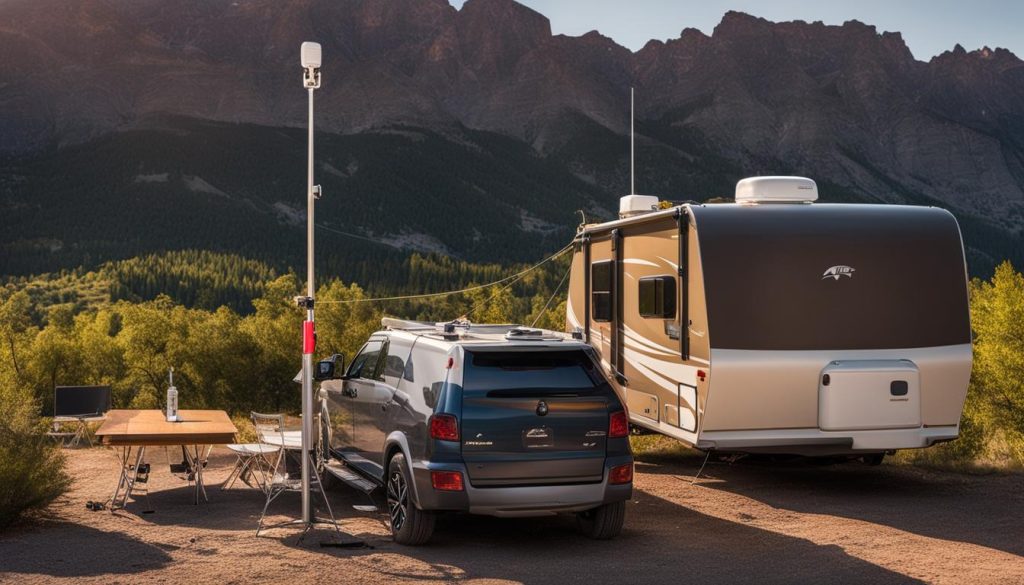
Additionally, it’s worth mentioning that WiFi availability may be limited or nonexistent when boondocking in remote areas. So, relying solely on WiFi networks may not be a reliable option for internet access during your outdoor adventures.
Pros and Cons of Using WiFi Networks for RV Internet
| Pros | Cons |
|---|---|
| – Available at many campgrounds and RV parks | – Signal quality and speed can vary |
| – Can be cost-effective if included in campsite fees | – Limited or no availability when boondocking in remote areas |
| – No need for additional contracts or data plans |
While WiFi networks can be a convenient option for RV internet access in certain situations, it’s important to weigh the pros and cons before relying solely on this method. If you frequently camp in areas with unreliable WiFi or require a more stable and faster connection, you may need to explore other internet solutions for your RV trailer.
Next, in section 4, we’ll explore the possibility of utilizing satellite internet for reliable internet access in even the most remote locations.
Considering Satellite Internet for RV Internet
If you’re looking for reliable internet access in even the most remote locations, satellite internet is an excellent option for your RV trailer. With satellite internet, you can stay connected to the online world no matter where your adventures take you.
To access satellite internet in your RV, you’ll need to install a satellite dish on top of your vehicle. Once the dish is properly configured and aligned, you can connect to the internet through satellite providers like Viasat or HughesNet.
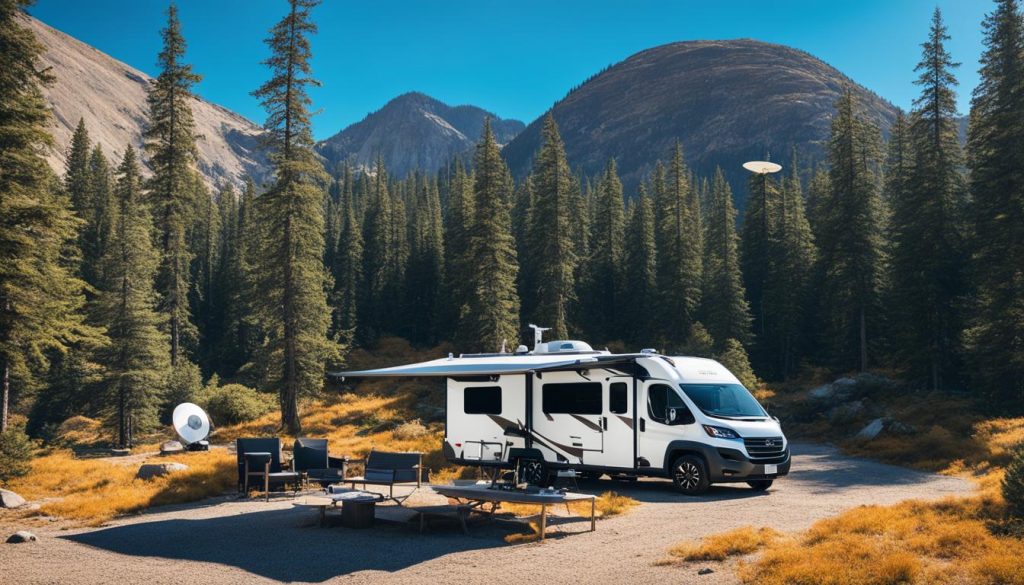
Satellite internet offers numerous benefits for RVers who travel off-grid or stay in remote areas for extended periods of time. Unlike cellular data or campground WiFi, satellite internet doesn’t rely on cell signals or local WiFi availability. This means you can enjoy internet access almost anywhere, whether you’re deep in the wilderness or exploring secluded campsites.
However, it’s important to consider a few factors before choosing satellite internet for your RV. First, satellite internet setup can be expensive, which includes the cost of the dish and professional installation. Additionally, satellite internet may have slower speeds compared to other options such as cellular data or WiFi networks. While advancements in satellite technology have improved speeds in recent years, it’s still essential to manage your expectations.
“Satellite internet is a game-changer for RVers who want to explore off-the-beaten-path destinations without sacrificing their internet connectivity.”
Weather conditions can also affect satellite connectivity. Heavy rain, snow, or strong winds can potentially interfere with the signal, leading to temporary disruptions in internet service. However, most satellite providers have optimized their systems to minimize these weather-related issues, and overall reliability has significantly improved.
| Pros | Cons |
|---|---|
|
|
Satellite internet is an ideal choice for RVers who prioritize staying connected in remote areas for an extended period of time. If your adventures take you off-grid or into secluded destinations, satellite internet can provide the reliable internet access you need to work, stream movies, or stay in touch with loved ones.
Choosing the Best RV WiFi Setup
When it comes to getting internet in your RV trailer, choosing the right WiFi setup is crucial. To begin, assess your specific needs and circumstances. Consider your internet usage, such as working remotely, streaming movies, or online gaming. This will help determine the level of connectivity you require.
Furthermore, take into account the locations where you plan to camp. Keep in mind that the availability and quality of cellular signals and campground WiFi can vary. Research different cellular carriers and their data plans to find the best option for your needs. Consider factors like coverage, data limits, and the possibility of throttling.
If you rely on campground WiFi, it may be worth investing in a WiFi extender or repeater. These devices can improve the signal strength inside your RV and enhance your overall experience. However, if you need reliable internet access in remote areas, satellite internet may be your best bet, despite the potential higher costs and slower speeds.
Ultimately, selecting the ideal RV WiFi setup is about finding the balance between your specific internet needs and seamless connectivity during your travels. With careful consideration and research, you can ensure that you stay connected and make the most of your time on the road.
FAQ
How can I get internet in my RV trailer?
There are several options for getting internet in your RV trailer. You can use cellular data from providers like AT&T or Verizon by turning your phone into a hotspot. Another option is to utilize WiFi networks available at campgrounds and RV parks. For those needing internet access in even the most remote locations, satellite internet may be the best choice.
What are the advantages of using cellular data for RV internet?
Using cellular data as your primary source of internet in your RV allows you to stay connected wherever you have a good cell signal. It is convenient if you are already using a mobile data plan, and you can connect multiple devices to your phone’s hotspot for internet access.
What are the limitations of using cellular data for RV internet?
When using cellular data for RV internet, it is important to consider data usage and potential limitations such as data caps and throttling. Depending on your internet needs, you may need to opt for an unlimited data plan to ensure reliable internet access throughout the month. Weak cell signals or remote locations may also affect the quality of your internet connection.
Can I rely on campground WiFi for internet access in my RV?
While many campgrounds and RV parks offer WiFi access to guests, the quality and speed of the signal can vary. It’s important to note that campground WiFi is often slower than home or public WiFi in other locations. Depending on your internet needs, you may need to invest in additional gear like a WiFi extender or repeater to improve the signal strength inside your RV.
Is satellite internet a good option for RVers?
Satellite internet can provide internet access in even the most remote locations, making it an ideal option for RVers who plan to boondock or stay in remote areas. However, it can be more expensive to set up and may have slower speeds compared to other options. Factors like weather conditions can also affect satellite connectivity.
How do I choose the best RV WiFi setup?
When selecting the best RV WiFi setup, consider your specific needs and circumstances. Determine your internet usage and the tasks you need to perform online. Research different cellular carriers and their data plans to find the best option for your needs. If you rely on campground WiFi, consider investing in a WiFi extender or repeater to improve the signal strength. For reliable internet access in remote areas, satellite internet may be the best choice, although it can be more expensive and have slower speeds.

